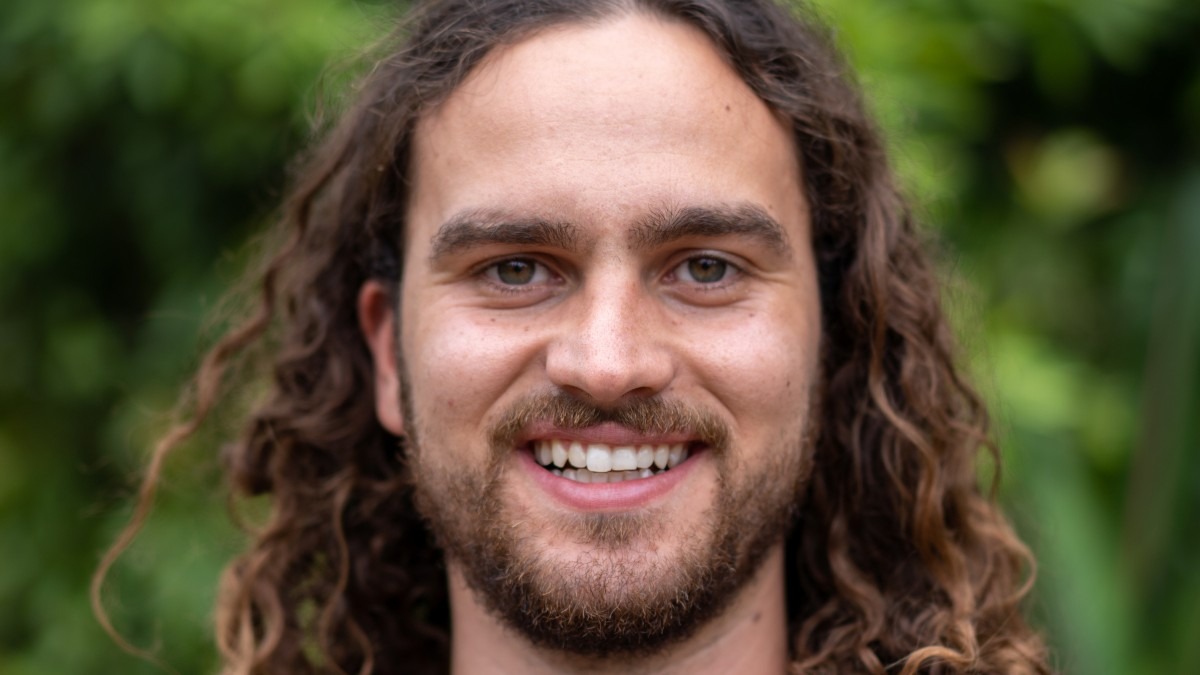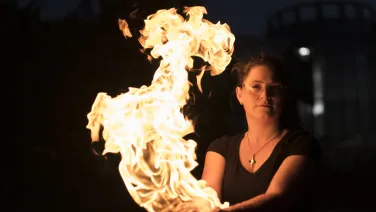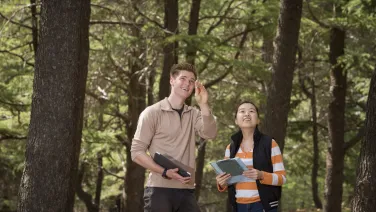What are you doing? You might not even know what your dream job is yet
When Jonah Lafferty tells the story of how he came to be stepping straight from his university graduation into his “dream job”, it begins like this:
“Jonah, oh God, what are you doing?!”
That’s what his teacher told him when he was picking his subjects for Year 11 and 12.
“I had picked all these artsy subjects,” he remembers, “and my teacher said, ‘You need to do a science class!’ But I was like, I don’t like science, it’s boring. But they said, ‘No, you clearly do love it, you just don’t realise it yet.’”
Naturally, by the time he finished high school, the science course was his favourite.
“It’s funny,” Jonah says, “but often the things you do just to give them a go, they end up being the things that interest you the most.”
Pursuing his newfound—or maybe just newly-realised—love for science, Jonah enrolled in a double degree in development studies and environment and sustainability.
Once at university, he discovered that more new interests would continue to reveal themselves in surprising places.
“I took some courses at the Fenner School of Environment of Society, learning about the intersection between the environment and people, and I didn’t even realise you could study that, let alone that people have careers in this interesting stuff. I just loved it.
“And never in a million years would I have thought that I would do computer-based data work and find that interesting, but then I did a course on GIS, mapping and analysing data, and it was just fascinating.”
Jonah says he quickly worked out that by pursuing paths which sparked his interest, no matter how unlikely, he’d end up “being really into whatever I was doing.”
“I was lucky enough to always be following opportunities as they popped up,” he says, including field schools in Vietnam and Indonesia, and working with researchers on their GIS projects.
These opportunities culminated in his honours year, working with the Arakwal community and the Bundjalung of Byron Bay Aboriginal Corporation to develop maps of their cultural values on Country.
“As the traditional owners of Byron Bay, Arakwal needed a way to influence development planning on Country,” Jonah explains. “Byron Bay is crazy, you know. Zac Efron has bought a house there; Chris Hemsworth lives there; Arakwal had to turn down a donation from Netflix who are trying to make a show there.
“I think that epitomises the struggle that Arakwal have, dealing with international stakeholders at times, to protect Country from being degraded and destroyed because of development or poor land management.
“So Arakwal needed a means to assert their cultural rights over Country, but at the same time, they need to protect the underlying cultural and intellectual property rights of that information.
“That's where the GIS comes into it.”
Using data collected with the Arakwal community in a series of workshops, Jonah created a composite heat map of cultural values on Country, which they can supply to stakeholders without having to reveal the underlying reasons for why the areas are significant.
“The Arakwal spatial database gives Arakwal sovereignty over their knowledge,” he explains.
“It was led by the community and the data was collected by the community, in the way they wanted. And by providing help to them to do GIS modelling, they can then govern their data in a way that furthers their goals and aspirations. And that’s really exciting.”
Throughout the process, Jonah discovered something else he loves.
“My favourite aspect of the research was working with real people, on a real project, with real outcomes with benefits which are obvious. Delivering on the objectives of the community, which they’d been wanting to do for a really long time, made everyone really happy. It made me happy. I feel so lucky to have been a part of it.”
Now, this will be Jonah’s career, starting with a new job collecting and working with spatial data for the Anindilyakwa Land Council on Groote Eylandt in the Northern Territory.
“I can’t believe it,” he says of the job offer. “I’m pinching myself that in this incredibly niche field, they’ve given me a permanent job doing exactly what I wanted.”
Given what he knows now, he shakes his head at the thought of how easily he might never have even started down this path.
“At high school I remember thinking, ‘What kind of job could you even do with environmental studies?’ Thank God, I listened to my teacher.”
If the intersection of environment and society sparks your interest, start your career path with a Bachelor of Environment and Sustainability at ANU.




